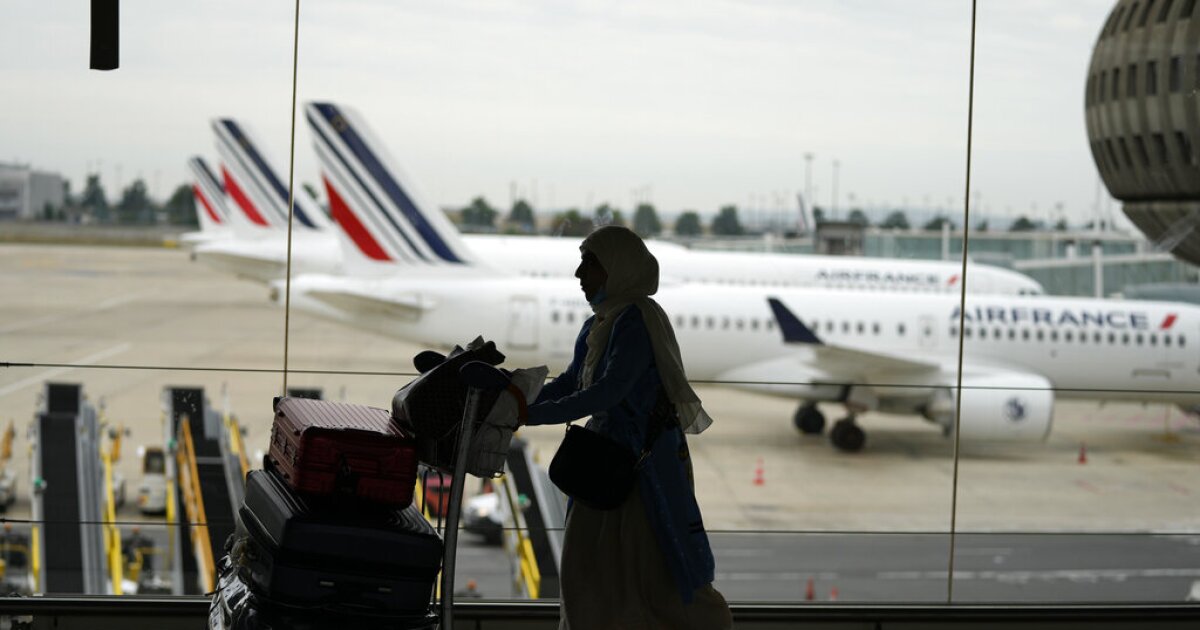

The European Union will scrap airplane mode next year and replace it with updated 5G services, giving passengers full use of their mobile devices during a flight — but the United States may not follow in its footsteps.
“5G will enable innovative services for people and growth opportunities for European companies. The sky is no longer a limit when it comes to possibilities offered by super-fast, high-capacity connectivity,” said Thierry Breton, the commissioner for the internal market, according to a European Commission press release.
Using a so-called “pico-cell,” the aircraft will be able to connect and route users’ data, usually via satellite, between the plane in the air and the mobile network on land, the commission wrote.
UNITED AIRLINES PARTNERS WITH JAGUAR TO INTRODUCE ELECTION VEHICLES FOR CONNECTING FLIGHTS
Regulators in the United States, such as the Federal Aviation Administration and Federal Communications Commission, have not yet hopped on board. The two federal agencies continue to restrict the usage of cellular devices while in the air and have shown no signs of following the EU’s footsteps.
The FAA has cited concerns about signals that could cause interference with navigation systems and air traffic control towers, which use radar, computers, and other visual references to monitor and direct the movement of aircraft. The FCC has echoed the same sentiments.
Cellphone companies such as AT&T and Verizon have already delayed their rollout of 5G services near airports after feeling pressure from the government and airport unions earlier this year. The delays could last at least through 2023, the agency said.
“We are frustrated by the FAA’s inability to do what nearly 40 countries have done, which is to safely deploy 5G technology without disrupting aviation services, and we urge it do so in a timely manner,” AT&T noted at the time.
The agency said it is working to fix the problem and is now making airlines upgrade or retrofit planes with equipment that isn’t as vulnerable to interference from 5G services, according to its website.
CLICK HERE TO READ MORE FROM THE WASHINGTON EXAMINER
The FAA said technology in other parts of the world might be different since their networks may have lower power needs, use antennas with different placements, and involve frequencies that have different proximity to those used by aviation equipment.
“If there’s the possibility of a risk to the flying public, we are obligated to restrict the relevant flight activity until we can prove it is safe,” the aviation agency said.
“Aviation in the U.S. is the safest in the world … because we rely on data to mitigate risk, and never assume that a piece of equipment or a given flight scenario is safe,” the agency added.







